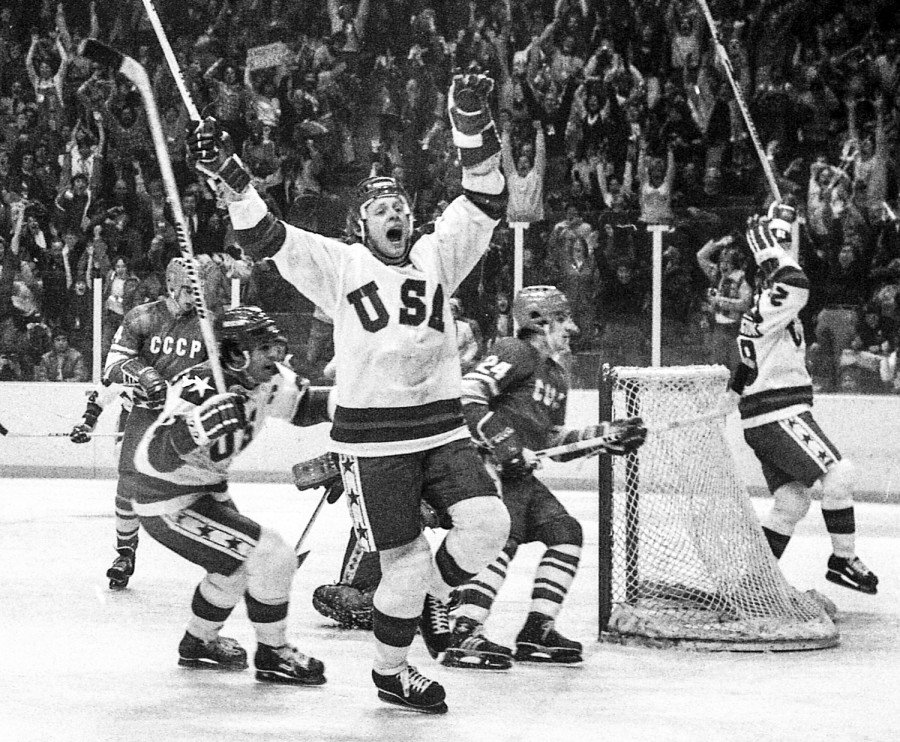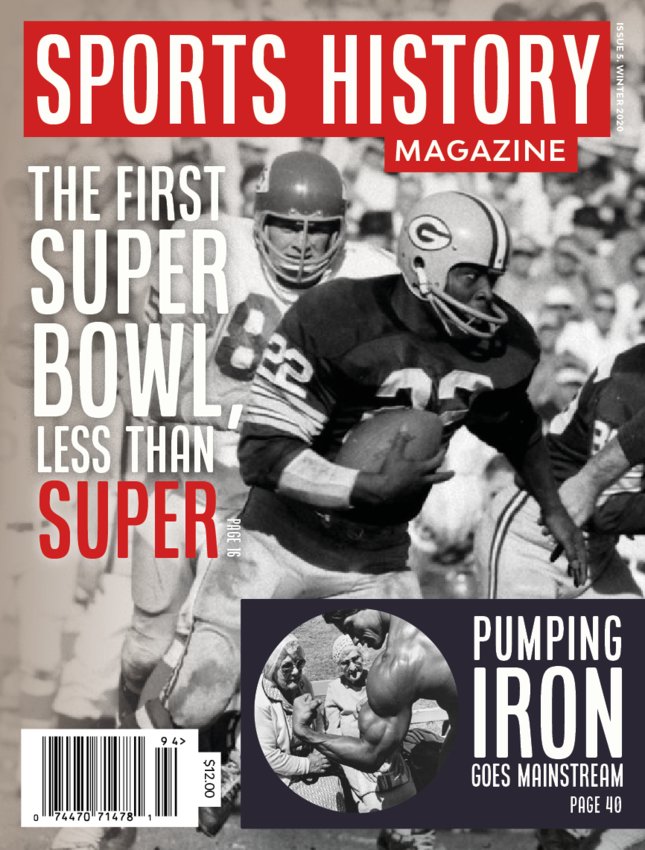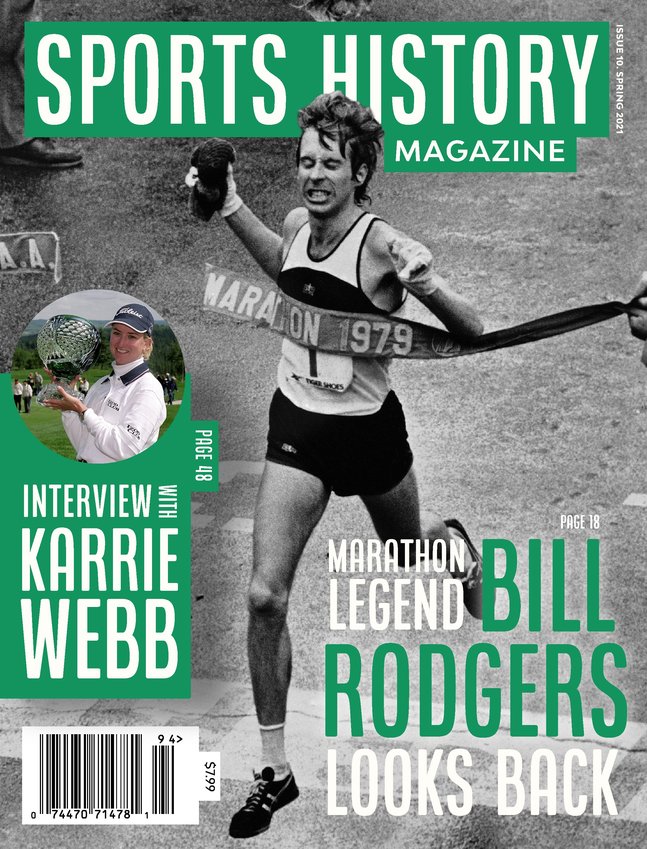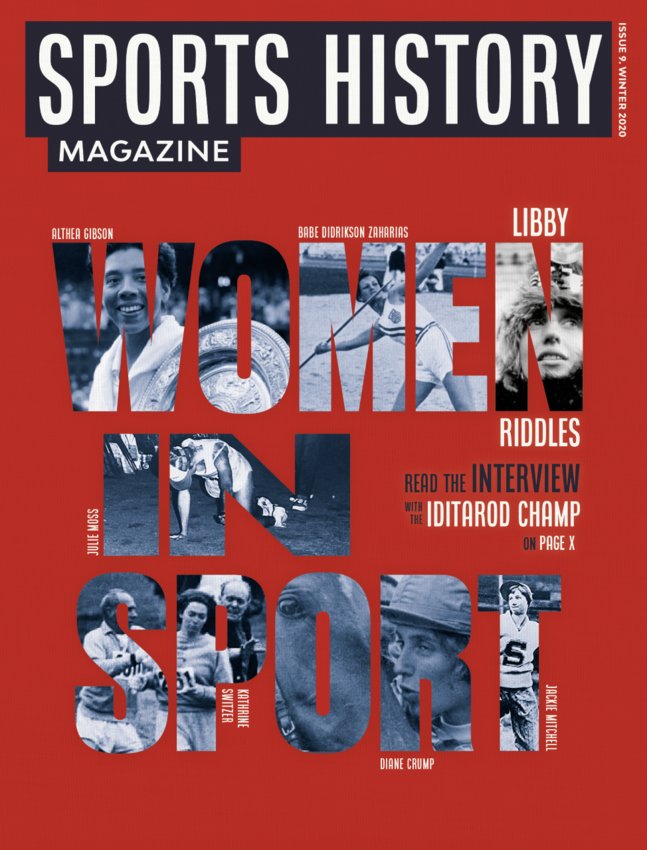Remembering Glory with ‘Miracle on Ice’ Captain, Mike Eruzione
Hockey’s version of ‘David versus Goliath’
Mike Eruzione, a gold medal winner for the 1980 U.S.A. hockey team, was center stage in the most significant team-sporting event of the 20th Century.
If the 1938 Joe Louis-Max Schmeling bout was billed as ‘Democracy vs. Fascism’, then the 1980 ‘Miracle on Ice’ story was ‘Democracy vs. Communism’.
When the XIII Olympic Winter Games arrived to Lake Placid, N.Y, America was weighed down by economic malaise and its confidence was still shaken from the failure in Vietnam, scandal in the White House, and the more recent Iranian hostage crisis.
The nation was desperate for heroes.
BUY- Mike Eruzione autographed color photo
As it happened, a group of college hockey players turned out to be exactly what the doctor ordered and a young Italian boy from Winthrop, Massachusetts became a national figure.
Today, Mike Eruzione lives and works in the Boston area where he grew up, went to school, played sports and raised his family. He is still the same guy 41 years after that famous goal that led his squad to a 4-3 victory over the highly favored Soviet Union.
"Big plays were made throughout the games," Eruzione says modestly from the comfort of his couch. "Big goals were made, big saves were made. You don't win a tournament with one play or one goal. I was just proud to be a part of it. Without the other goals, mine is pretty much irrelevant."
"Irrelevant" is basically what the head coach of the Soviets, Victor Tikhonov, thought of the U.S. team after thrashing the Americans at Madison Square Garden 10-3 a few weeks before the Olympic match-up.
Tikhonov also coached the U.S.S.R. national team to its triumph over the NHL All-Stars the previous February. Through an interpreter, he said in an interview at the time, "We showed what we can do, and they didn't."
"No one gave us a 'hope in hell' of winning," says Eruzione. "The whole world thought we had no chance." But Team U.S.A. had a secret weapon in head coach Herb Brooks.
Brooks was an Olympic player in his day. But unfortunately, he was the last cut on the U.S. hockey team that won gold in 1960, an event that haunted Brooks for two decades. This time, the master motivator wouldn't let history slip from his grasp.
The Soviet hockey team was filled with hard-core veterans like wingers Boris Mikhailov, Valeri Kharlamov and the best goalie in the world, Vladislav Tretiak. The Russians ruled the Olympics, clinching four consecutive gold medals since 1964 and posting a 27-1-1 record over that 16-year span. Winning gold again would be a mere formality.
It was the hockey version of ‘David vs. Goliath’, as college kids from Massachusetts, Minnesota and Wisconsin made up the U.S. roster. At 24-plus, Eruzione was the elder statesman and captain of the team.
"Our average age was about 21 or 22. I was 25, Buzz Schneider was 25," says Eruzione. "Our team in 1980 would be the youngest college team in hockey today."
BUY- Entire 1980 Team USA Hockey autographed American flag
The big challenge for Brooks was how he would unite these heated college rivals into a powerhouse team. The answer was simple - HATE THE COACH.
"It was almost 'us' against 'him.' He wanted to be the 'son-of-a-bitch.' He wanted to be the guy nobody liked. He didn't care if you liked him, but it was important you respected him. There was never a time we didn’t respect. We respected him, we trusted him," says Eruzione passionately when talking about his late coach.
"He pushed us. That's how coaches coached in that era. Herb was a great motivator. He knew what to say and when to say it. He knew whom to motivate. Everyone is motivated differently. He knew which buttons to push. Some people need a hug; you can't get in everyone's grill all the time. By doing this he could motivate the team collectively. He had six or seven of us that he would challenge and push and push. I think that's a great talent he had when he put this team together."
Brooks prepared his team mentally as well. He brought the Soviet legends down to earth by remarking that winger Boris Mikhailov looks like the 1930s comedic actor Stan Laurel (not a compliment) and that head coach Tikhonov resembles a chicken the way his hair puffed up in the front.
"That was a way for Herb to relax guys and laugh a little, which was rare," says Eruzione. "That’s the brilliance of him as a coach. He said the right thing at the right time. I think he would have been successful in the pros if he could have picked his players."
In the moments before the 5 p.m. start on Friday, February 22nd against the Soviets, the locker room was silent. "It was just quiet and our locker room was never quiet," recalls Eruzione. "I'm sitting there and looking around, it's deadly quiet and I'm thinking, we are ready to play."
Then Herb came in and gave his famous speech: "You were born to be a player. You are meant to be here. This moment is yours. You're meant to be here at this time."
Eruzione didn't understand exactly what that meant. "It wasn't until after the games that I thought about it," he says. "We were born to be players, we were meant to be there."
The college rivals bonded into teammates and they were minutes from entering the rink and making history. The Fieldhouse in Lake Placid was filled to capacity with close to 10,000 raucous fans. When the team stepped on the ice, the chants of "U-S-A! U-S-A! U-S-A!" started.
But reality hit as soon as the Soviets scored the first goal. Eruzione knew if they could stay close there would be a chance to pull off the unbelievable. The period ended 2-2 with a tying goal by Mark Johnson in the final second. Team U.S.A survived the initial onslaught.
Then, in a shocking move, the Soviets pulled their legendary goalie in favor of Vladimir Myshkin. Despite Tretiak's benching, the Reds were attacking the net, outshooting the U.S. 12-2, and took a 3-2 lead after the second period.
BUY- Entire 1980 Team USA Hockey autographed framed photo
Goalie Jim Craig was at the top of his game, keeping his team close heading into the final 20 minutes. Back in Eruzione’s hometown of Winthrop, people were crazed with excitement. The game wasn't on live television, so everyone was getting updates on the radio and calling the Eruzione family.
Nine minutes into the period, Johnson, or ‘Magic’ as he was called, came through again with his second goal of the game, tying it at 3-3. Chants of U-S-A, U-S-A, U-S-A deafened the Field House.
Shortly after, Captain Mike Eruzione sent the arena, the town and the country into a massive eruption! Eruzione’s shot went past a defenseman and the Soviet goalie. "It took a moment to realize it. But when I saw the fans behind the goal, leaping up out of their seats, hands in the air, I knew."
Fittingly, Eruzione in Italian means eruption. Pandemonium ensued. The team captain celebrated with a unique high-step and was swarmed by his teammates as the U.S. took a 4-3 lead.
But there were 10 minutes left and the Russians could quickly erase a one-goal lead. "Play your game," Brooks kept saying according to Eruzione. Goalie Craig continued to be the glue for the team making save after save.
As the final seconds to the game came down, ABC broadcaster Al Michaels blurted prophetically, "Do You Believe in Miracles...YES!"
The stunning win over the Soviets wasn't the end. The U.S. defeated Finland 4-2 two days later to complete the dream and win gold. For Eruzione and the rest of the team and their coach, America was their oyster.
"Everyone wondered how the Minnesota-Boston guys would get along. To this day, we laugh about it. We got along from day one," says Eruzione with a smile on his face. "When you put the jersey on, it doesn't say Minnesota or Boston, it says U.S.A. across the front."
To this day, ‘Miracle on Ice’ remains one of the most enduring moments in American sports history as a group of young college athletes and their determined coach restored the spirit of a downtrodden nation.
After the Olympics, Eruzione had opportunities to play in the NHL and did some broadcasting work with MSG and other networks, but he was content to remain in his hometown and help coach at Boston University, his alma mater.
Mike Damergis is Professor of Sports Media & Communications at Iona College and former radio and TV producer. (The interview with Mike Eruzione was conducted by zoom in his class of graduate students at Iona).
ENJOY OUR CONTENT? SIGN UP FOR OUR FREE WEEKLY NEWSLETTER AND SHARE ON YOUR SOCIAL MEDIA













